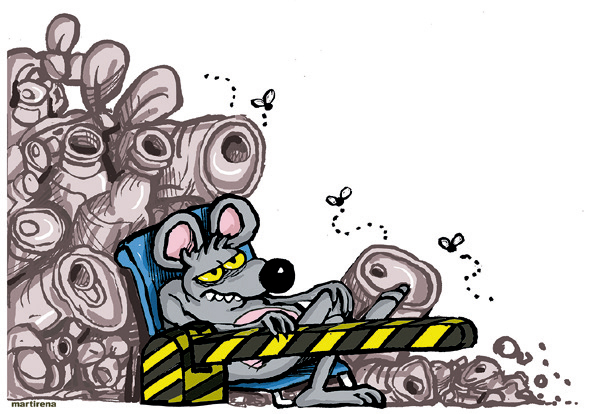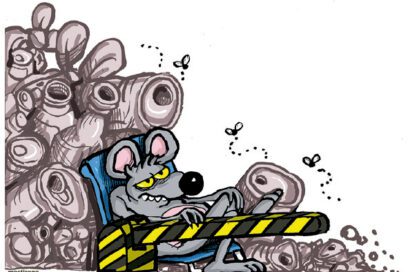Panic gripped the neighborhood with the cry: «A badger, there’s a badger in my kitchen. Suddenly, the chattering atmosphere of the community was enlivened and a sea of versions emerged; maybe it was a ferret, maybe it was a rat.

The expressions of disgust and astonishment were not long in coming, along with the criteria of the «experts» to exterminate the aforementioned animal. Only the nonagenarian of the block put her finger on the sore spot: «As long as they throw garbage in the street, we will have all kinds of vermin».
The looks, the silence, the introspective guilt… were noticeable in the first moments, but then, after the shock, the novelty and the time, everything returned to (ab)normality.
Since then, the landfill has continued to grow, restricting the passage of pedestrians and vehicles, which now border it to move forward.
Cities that were once a showcase of cleanliness, hygiene and beauty, such as Santiago de Cuba, cannot escape the avalanche of filth that descends upon the people, and the less central the neighborhood, the worse it gets.
Whose fault? Many, and with implications for all.
Community Services, whose state mandate includes solid waste collection, is just the tip of the iceberg.
Of course, we cannot ignore the fact that this entity, subordinate to local governments – with their respective responsibilities – is deeply affected by the shortcomings of the Cuban economy, especially in terms of specialized equipment.
This means that the men and women with brooms, dustpans and garbage carts in hand – along with others from Community Services who are now celebrating their day in the sector – have a multiplied quota of work to do, despite having no means of protection and salaries that are as low as those of so many others in the budgeted sector.
In the invisible part of the iceberg are laziness, indiscipline, carelessness and the absence of a culture of environmental hygiene that should be fostered at home and consolidated at school, but which, judging by the facts, is either not being done or is being done poorly, half-heartedly, without coherence or articulation.
The subject of these lines is as old and recurrent as the micro and macro garbage dumps, the papers and other waste thrown in the streets, the absence of baskets on the public road, or the need to dispose of household waste when the transport to collect it is absent for days.
Acerca del autor
Periodista cubana. Máster en Ciencias de la Comunicación. Profesora Auxiliar de la Universidad de Oriente. Guionista de radio y televisión.



